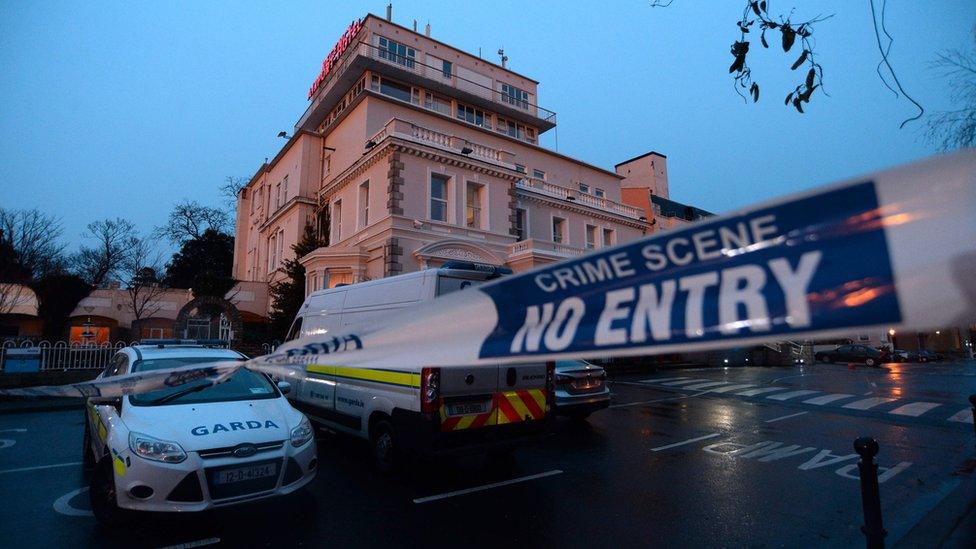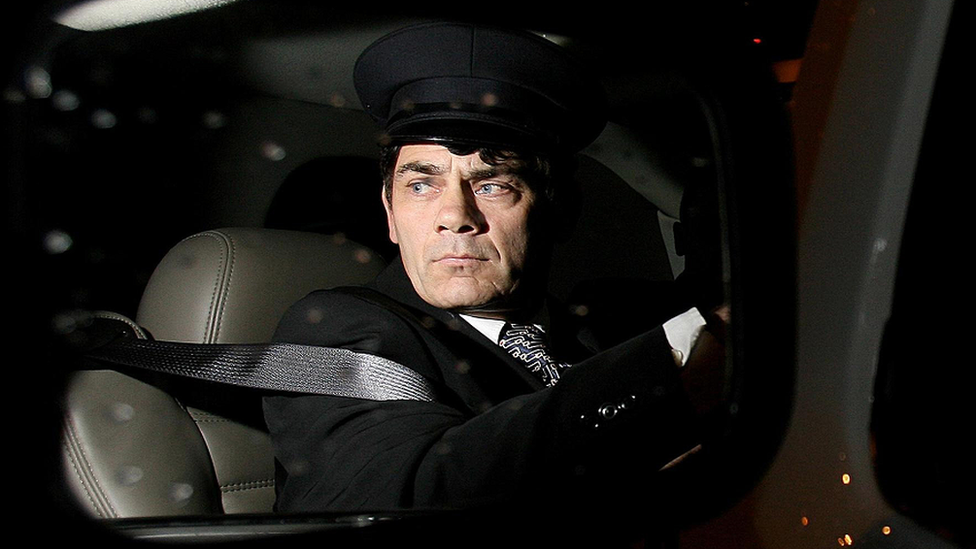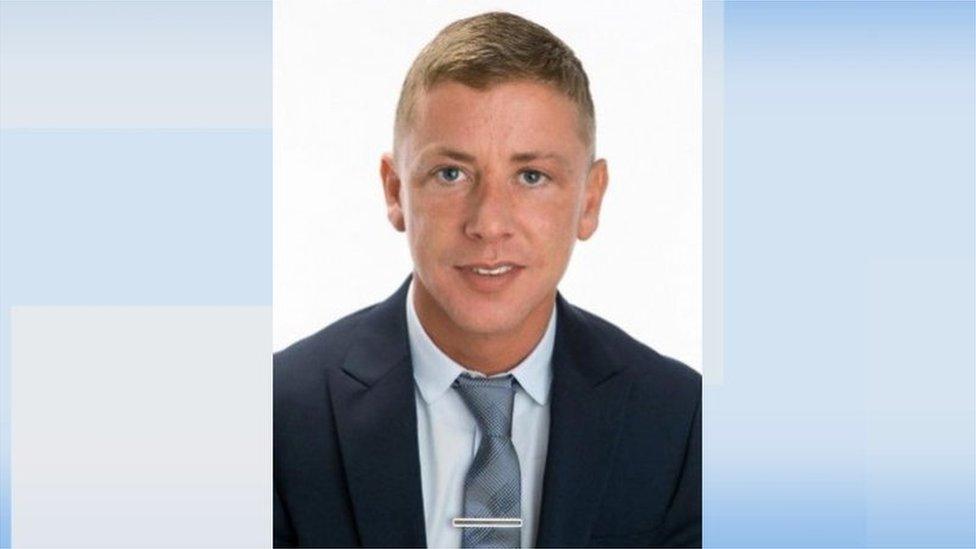Gerard Hutch and Jonathan Dowdall lose David Byrne murder trial appeal
- Published

David Byrne died after being shot in the 2016 gun attack at the Regency Airport Hotel
Ireland's Supreme Court has dismissed an appeal to halt the pending murder trial of two men before the non-jury Special Criminal Court (SCC).
Gerard Hutch, 59, and former Sinn Féin councillor Jonathan Dowdall, 44, are accused of murdering David Byrne.
Mr Byrne, who was 33, was shot dead at Dublin's Regency Airport Hotel in February 2016.
In an unanimous decision on Friday five judge Supreme Court cleared the way for their trial to proceed before the SCC.
Mr Hutch, who was extradited from Spain, and Mr Dowdall, of Navan Road, Dublin, both deny the charges.
The men's lawyers had argued that their trials before the SCC would be unlawful because the court has become a de facto permanent court when the relevant legislation only provides that it be temporary.

Gerard Hutch is one of the men charged with the murder
The argument was made in an appeal by the two men against an earlier High Court decision rejecting their challenge over the trials being heard before the SCC.
The High Court found the temporary/permanent argument was a political question and therefore not justiciable before a court.
In its decision, the Supreme Court upheld the High Court's findings and dismissed the appeal.
Giving the Supreme Court's decision Mr Justice Donal O'Donnell said that the 1939 Offences Against the State Act does not contain "a test of permanence," by which to gauge the lawfulness of the existence of the SCC.
The Supreme Court also found that no duty attaches to the Dáil Éireann (Irish parliament) to continuously review the necessity of the SCC.

Jonathan Dowdall, 44, is also accused of murdering Mr Byrne
The court in its decision also ruled that the Irish Human Rights and Equality Commission did not meet the legal requirements to be formally joined as an amicus curiae or friend to the court in the proceedings.